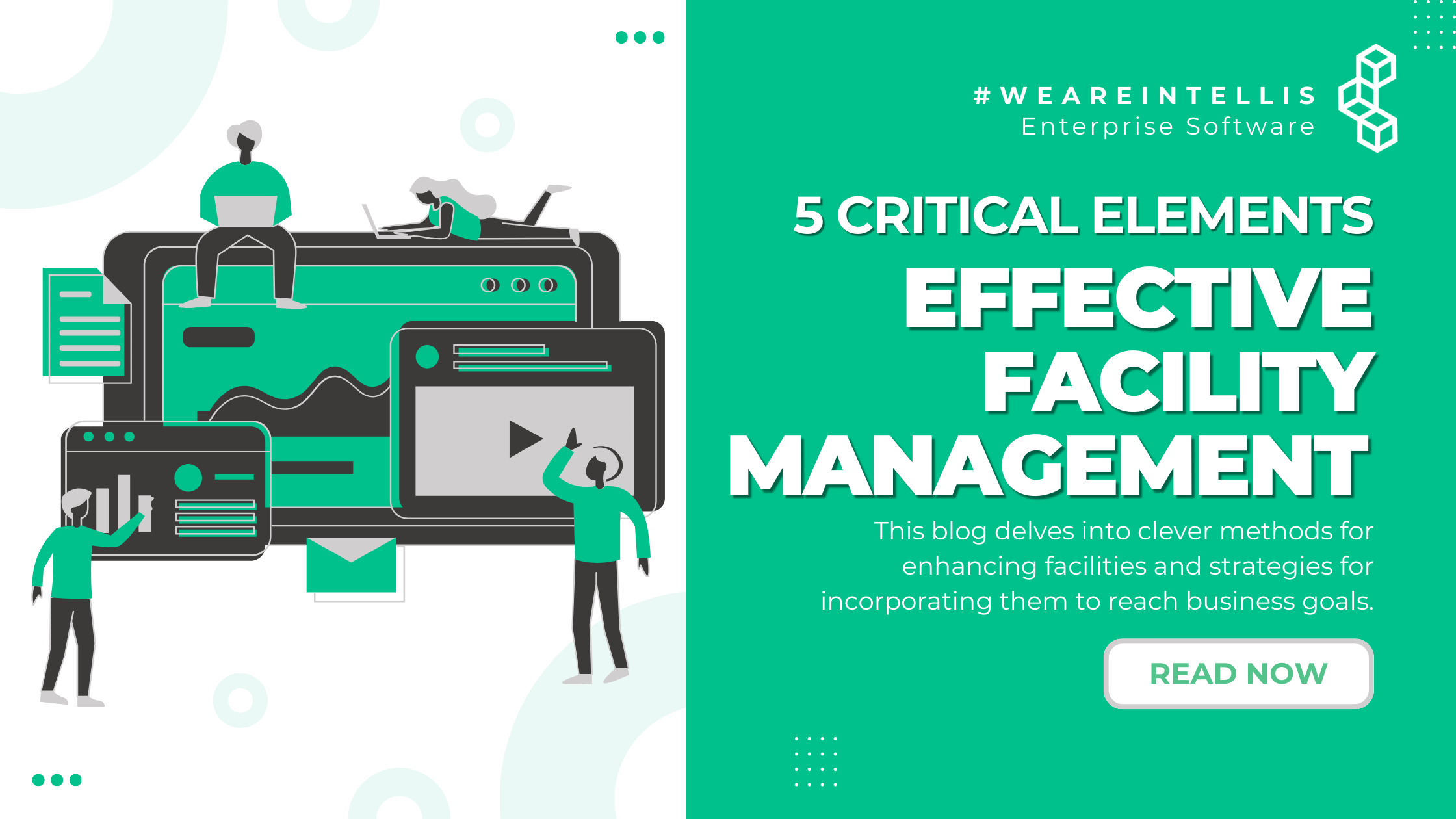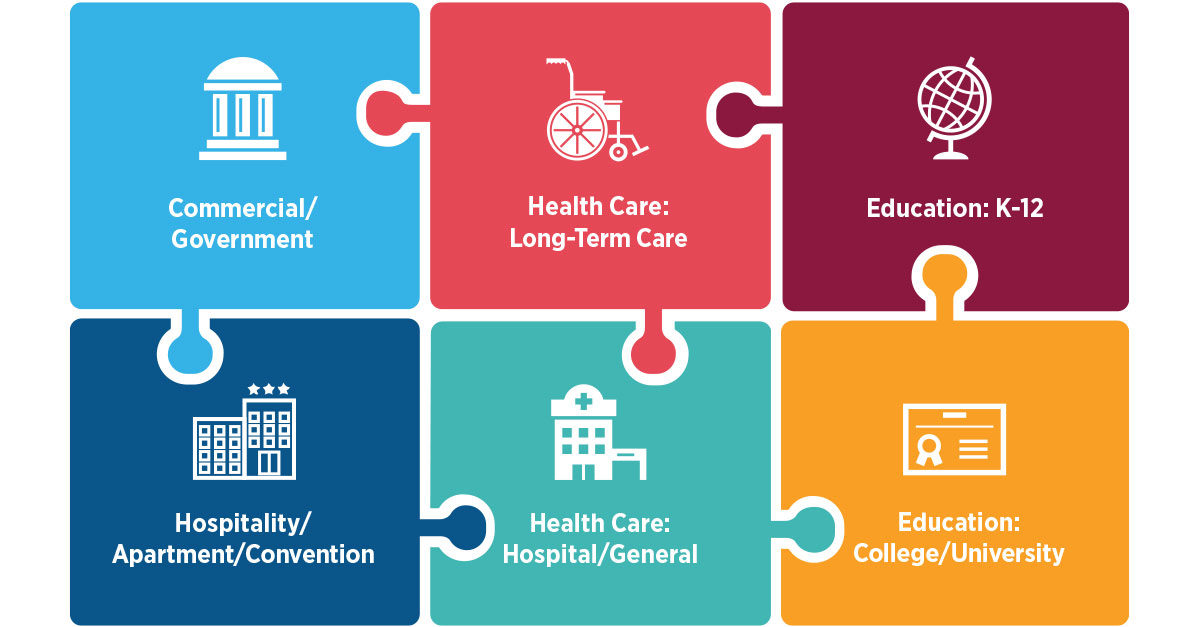Trick Patterns Shaping the Future of Center Management in 2024
As we look in advance to 2024, the landscape of facility administration is poised for considerable change, driven by a number of crucial trends. The integration of smart structure modern technologies and a change in the direction of data-driven decision-making assurance to improve operational efficiency while focusing on sustainability in technique.
Smart Structure Technologies

Smart building innovations include a wide selection of systems, consisting of smart lights, HVAC controls, and safety systems. By incorporating these systems, facility managers can monitor and readjust criteria in real-time, causing significant reductions in power waste and operational expenses. For example, clever sensing units can discover tenancy degrees and adjust lighting and temperature appropriately, ensuring that power is just used when required.
Furthermore, these modern technologies facilitate enhanced information collection, enabling companies to track use patterns and recognize possibilities for further enhancements. The implementation of smart structure innovations not only adds to sustainability objectives yet likewise produces much healthier workplace that can enhance staff member efficiency and satisfaction.
As we move into 2024, the adoption of smart structure innovations will likely accelerate, showing a broader shift in the direction of more smart, responsive, and sustainable center management techniques.
Data-Driven Decision Making
Progressively, companies are leveraging data-driven decision making to boost facility administration methods. By harnessing information analytics, center supervisors can derive actionable insights that substantially improve functional effectiveness and resource allowance. The integration of advanced innovations, such as IoT sensors and real-time monitoring systems, enables the collection of vast amounts of information on building performance, tenancy prices, and power consumption.
This wide range of info enables center supervisors to determine trends, anticipate upkeep requirements, and proactively address problems before they escalate. Anticipating analytics can forecast equipment failures, decreasing downtime and fixing costs. Additionally, data visualization tools help with much better communication amongst stakeholders, making sure that informed choices are made collaboratively.
Moreover, data-driven strategies enhance strategic preparation by enabling center supervisors to evaluate the effectiveness of existing methods and make educated choices relating to investments in innovation or facilities. As companies progressively prioritize operational excellence, data-driven choice production is positioned to end up being a cornerstone of successful facility management strategies in 2024 and beyond. Eventually, the ability to leverage information successfully will encourage companies to create extra effective, productive, and resilient centers.
Sustainability and Environment-friendly Practices
The focus on data-driven decision making naturally straightens with the expanding concentrate on sustainability and eco-friendly methods within center monitoring. As organizations progressively focus on environmental obligation, facility supervisors are leveraging analytics to enhance resource use, reduce waste, and reduce carbon impacts. This tactical approach makes it possible for the assimilation of energy-efficient systems, such as LED lighting, smart heating and cooling controls, and renewable resource resources into facility procedures.
Moreover, the implementation of sustainable practices expands past power usage. Center supervisors are embracing eco-friendly products and promoting reusing efforts to develop a circular economy within their centers. This not only enhances the environmental profile of the organization but additionally promotes a society of sustainability among employees.
Conformity with ecological policies is another essential element driving the fostering of environment-friendly practices. By using information analytics, center managers can keep an eye on conformity metrics and recognize areas for improvement, guaranteeing adherence to neighborhood and international sustainability requirements.
Crossbreed Work Models
A significant shift towards crossbreed job versions is improving the landscape of facility management in 2024. This standard integrates in-office and remote job, necessitating a reevaluation of space application, source allowance, and worker interaction methods. Organizations are progressively identifying the importance of versatile workspaces that accommodate diverse requirements and preferences.
Facility managers need to adapt by applying functional office designs that support collective efforts while offering locations for concentrated work. This consists of the assimilation of innovation to assist in smooth communication and partnership among in-office and remote staff members. Smart building remedies, geared up with analytics and sensors, permit real-time monitoring of area usage, making it possible for organizations to maximize their settings efficiently.
In addition, crossbreed work versions stress the need for reliable facility administration that focuses on worker experience. This incorporates not just modern technology and room design yet also the advancement of plans that promote a well balanced work-life dynamic. As business browse this transition, the duty of facility monitoring becomes critical in developing a dexterous work environment that fosters performance and drives business success. Essentially, the hybrid work model is redirected here revolutionizing facility monitoring, encouraging a positive method to satisfy the advancing demands of the workforce.
Boosted Resident Health
As organizations welcome hybrid work designs, an increased concentrate on owner health is becoming indispensable to facility administration methods. Facility Management. This change recognizes that a completely satisfied and healthy and balanced workforce directly impacts efficiency and retention prices. Center managers are currently focusing on settings that promote physical and psychological wellness, integrating components such as natural lights, biophilic style, and available wellness sources

Modern technology plays an important duty in this advancement. Smart building systems can keep track of environmental aspects and readjust settings in real-time, making certain optimal comfort levels - Facility Management. Moreover, feedback mechanisms, such as tenancy sensing units and staff member surveys, allow facility managers to continuously refine wellness campaigns based on site here passenger demands.

Final Thought
In 2024, the future of facility administration will be considerably influenced by the integration of smart structure modern technologies and data-driven decision-making, cultivating boosted functional effectiveness. Sustainability efforts will certainly focus on environment-friendly methods, while the development of hybrid job versions will certainly demand adaptable office designs. An increased emphasis on passenger health with advanced Cooling and heating systems and biophilic style will add to healthier job environments. These fads jointly underscore the advancing landscape of center management in feedback to modern difficulties and opportunities.
Facility supervisors are adopting environmentally friendly products and advertising reusing efforts to develop a circular economic climate within their centers.A considerable change towards hybrid job versions is reshaping the landscape of center management in 2024.In addition, hybrid job models highlight the demand for reliable center monitoring that prioritizes worker experience.As companies welcome hybrid work designs, an increased emphasis on owner wellness is ending up being indispensable to facility administration strategies.In 2024, the future of facility administration will certainly be dramatically influenced by the integration of wise structure innovations and data-driven decision-making, fostering improved operational effectiveness.
Comments on “Facility Management-- Vital Services for Efficient Operations”